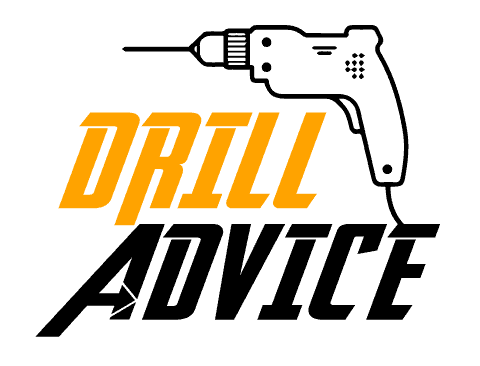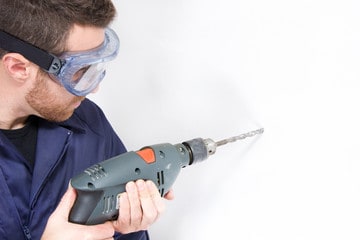Cobalt drill bits can be identified by their color and shape. Cobalt drill bits can be identified by their dull golden color, higher hardness, and less reactivity with the environment. Cobalt drill bits are mainly two types those are M35 and M42. M35 has 5% cobalt included, and M42 has 8% cobalt included. Due to the higher amount of cobalt M42 is harder than M35. Hence M42 is widely used in the production process.
In order to improve more characteristics, Cobalt drill bits are coated with TiN, TiAlN, and TICN. These coatings’ main purpose is to reduce friction and improve durability and thermal stability. A regular cobalt drill bit can be resharpened easily, and the coated cobalt drill bits are not good for resharpening because its coating will be removed due to the sharpening process.
What is a Cobalt Drill Bit?
A cobalt drill bit is a type of drill bit that is made from solid cobalt alloy or high-speed steel (HSS) infused with cobalt. The percentage of cobalt in the drill bit can vary, but it is usually between 5% to 8%. Cobalt drill bits are specifically designed to drill through hard materials like stainless steel, cast iron, titanium, and other hard metals. They can also be used for softer materials like wood and plastic.
Cobalt drill bits are durable and have excellent heat resistance. They can withstand temperatures up to 1100 degrees Celsius. This high heat resistance allows them to maintain their hardness and edge even when drilling through hard materials. Cobalt drill bits have a last long cutting edge for a longer period compared to standard HSS drill bits, reducing the need for frequent sharpening.
Some cobalt drill bits are coated for increased durability and performance. Common coatings include titanium nitride (TiN), which can increase the hardness and heat resistance of the drill bit. However, many cobalt drill bits are not coated, as the cobalt itself provides the necessary hardness and heat resistance.
What is the Cobalt Drill Bit Angle?
The cobalt drill bit angle varies with the type of drilling metal. You can use 118 degrees for soft metals and 135 for hard metals with respect to cobalt. Cobalt drill bits can have a wider cutting angle of 135 – 140 degrees, which is highly recommended for harder metals such as titanium. Due to the wider cutting angle, it slowly drills inside the workpiece. Hence, you should always use a lower RPM.
What are the Cobalt Drill Bit RPM and SFM?
When you drill using cobalt drill bits, you can use 2000 – 2500 RPM for the smaller drill bits, such as 1/8″. When you use larger drill bits up to 1/2″, you can use lower RPM such 600 RPM always.
- R.P.M. = (3.8197 / Drill Diameter) x S.F.M.
- S.F.M. = 0.2618 x Drill Diameter x R.P.M.
How to Identify the Cobalt Drill Bits?

Cobalt drill bits can be identified by their color and shape. Cobalt drill bits can be identified by their dull golden color. It is called an amber surface finish. Cobalt drill bits are not bright golden colors like titanium-coated drill bits. As well as, cobalt drill bits do not rust. Hence you can identify it even in wet environment.
Cobalt drill bits are harder than the regular HSS (high-speed steel) drill bits and can be sharpened relatively easily with cutting fluid while retaining their strength and durability. The tip has a 135-degree angle.
What are the M35 and M42 Cobalt Drill Bits?
M35 and M42 are cobalt drill bits. M35 contains 5% cobalt with HSS, and M42 contains 8% of cobalt with HSS.
M35 Cobalt Drill Bits
- M35 drill bits are made from a cobalt alloy containing 5% cobalt.
- M35 cobalt drill bits have 64-66 HRC hardness value
- M35 has higher heat resistance and hardness; hence, those are suitable for drilling into tough materials.
- M35 cobalt drill bits are a cost-effective option for general-purpose drilling in metal and are commonly used in machine shops and for DIY projects.
M42 Cobalt Drill Bits
- M42 drill bits are made from a cobalt alloy containing 8% cobalt.
- M42 cobalt drill bits have 68-70 HRC hardness values
- They offer even greater heat resistance and hardness compared to M35 drill bits.
- M42 cobalt drill bits are specifically designed for drilling into extremely hard materials, including high-strength steel, stainless steel, and other alloys.
- They are more durable and have a longer lifespan than M35 drill bits, making them a preferred choice for professional applications where high performance and longevity are essential.
According to the different proportions of the cobalt, physical and chemical properties are varied. Hence, cobalt drill bits are suitable for metals and many hard materials.
What Metals Can Be Drilled Using Cobalt Drill Bits?
Using cobalt drill bit, you can drill soft metals like aluminum and hard metals like hardened steel. Below are the list of metals that can be drilled using cobalt drill bits.
- Aluminum
- Copper
- Bronze
- Steel
- Cast Iron
- Stainless Steel
- Hardened Steel
- Titanium Alloys
- Nickel Alloys
What are the Coated Cobalt Drill Bits?
Cobalt drill bits are coated with titanium compounds in order to improve their physical characteristics. Normally, coated cobalt drill bits are different in color. Titanium, Aluminum, Nitrogen, and Carbon are used as the mixed compound layer on the drill bit. The most used coatings are
- TiN – Titanium nitride coating (Golden color coating)
- TiCN – Titanium carbon nitride (Grey color coating)
- TiAlN – Titanium aluminum nitride (Violate color coating)
These coatings are applied on the drill bit in order to improve the service life, and thermal resistance and reduce the friction between the drill bit and the cutting surface.
What is the Durability of Cobalt Drill Bits?
The durability of the cobalt drill bit withstands about 1000-2000 holes of drilling hardened metals such as stainless steel, cast iron etc. However, the durability of the cobalt drill bit can be varied with the hardness of the metal, state of the outer surface, the sharpening and resharpening process, and the melting point and the drilling techniques to be used for the drilling.
Cobalt is an element between “Mohs scale” numbers 7-8, and its means it is a harder metal. And during the production process of cobalt drill bits from HSS drill bits, there is no outer surface painting process. Therefore, it can be sharpened when it becomes blunt. A high level of melting point helps to do the long-period drilling process. In addition, the lifespan of a bit depends on the type of bit used and the drilling technique used.
Can You Sharpen Cobalt Drill Bits?
You can sharpen a cobalt drill bit. When you see the chip size is less than 2mm, it is time to resharpen the cobalt drill bit. But if your cobalt drill bit has been coated with TiN, TiCN or TiAlN, do not try to re-sharpen it. When you sharpen coated drill bits, their coat will be removed, and it will act like normal cobalt drill bits.
If you use blunt bits, the broken part can damage your fingers, eyes and face. Therefore, it is best to sharpen these bits at the appropriate time. You can use this guide to sharpen the cobalt drill bit step by step.
How to Damage a Cobalt Drill Bit?
A cobalt drill bit can be damaged due to these 7 reasons
- Using the cobalt drill bit on inappropriate materials.
- Overheating the cobalt drill bit through excessive use.
- Using the cobalt drill bit at an incorrect angle.
- Using the cobalt drilll bit at an incorrect speed.
- Not cleaning and maintaining the cobalt drill bit properly.
- Dropping or physically damaging the cobalt drill bit.
- Using a worn-out or damaged cobalt drill bit without repairing or replacing it.
Is Titanium Drill Bits Better Than Cobalt Drill Bits?
Titanium drill bits are not as good as cobalt drill bits. Because the cobalt drill bit has a higher hardness of 7-8 Mohs scale while it is 6 for the titanium. Although Titanium has a higher melting point of 3034 °C. it is applied as a coating of the HSS drill bit. Hence, its properties are always less than those of the cobalt drill bits.
Are Cobalt Drill Bits Good For Hardened Steel?
Yes, you can use a cobalt drill bit on hardened steel. Because cobalt drill bits are more harder and has a higher melting point than hardened steel. Hence coblat drill bits will not melt when it is used to drill hardened steel.
Are Cobalt Drill Bits Good for Aluminum?
Yes, cobalt drill bits are good for soft metals like aluminum with higher RPM and thrust. But you can’t use an aluminum-based titanium-coated drill bit to drill the aluminum metals because it can interact with the aluminum metal with higher temperature and thrust.

